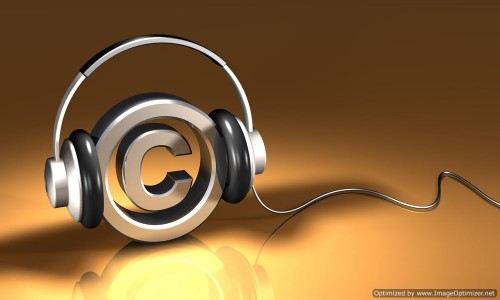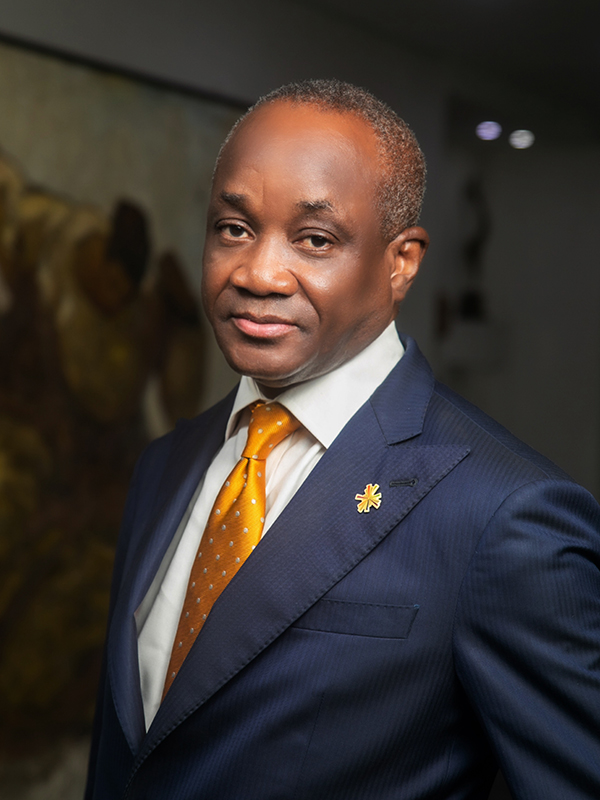Introduction
In 2019, Ajibola Muyiwa Danladi, popularly known as ‘Danny Young’ brought copyright infringement proceedings against Tiwa Savage and her then record label, Mavin Records, on the grounds that Tiwa Savage allegedly lifted lyrics from his ‘Oju Tiwon’ song and used same in her 2018 song ‘One’.[1] Although the parties reportedly settled the matter out of court and the suit was consequently discontinued,[2] this occurrence is a clear example of the need for artists to take steps to avoid potential liability when creating/producing their songs. One area that could be a pitfall for artists is the issue of ‘sampling.’
Essentially, sampling is the incorporation of parts of an existing sound recording into the creation of a new recording.[3] “The amount of work sampled can range from taking the entire ‘hook’ or chorus /refrain from a musical composition to smaller elements, such as a riff or even one or two notes or words.”[4] Although popularized in contemporary times by the Hip Hop genre, sampling has become widespread and is now a fairly common element of the music production process in other genres such as RnB, EDM, Pop, and even Afro beats. For instance, the opening riff of Beyonce’s ‘Crazy in Love’ was sampled from the Chi-Lites 1970 ‘Are You My Woman.’ Many prominent Nigerian artists have also included samples in their music. For instance, Wizkid in his song ‘Jaiye Jaiye’ sampled Fela Anikulapo Kuti’s ‘Lady’ and Flavour in his 2011 hit song ‘Nwa Baby (Ashawo Remix)’ sampled ‘Sawale’ by Rex Lawson.[5] Nigerian Artists have also had their songs sampled by other musicians with Fela Anikulapo Kuti being credited as the most sampled Nigerian musician to date.[6]
Copyright in songs
Copyright is a bundle of rights which the author or originator of certain intellectual works is entitled to. This bundle of rights grants the author or originator of the work the exclusive privilege to: (a) reproduce the work; (b) publish the work; (c) perform the work; (d) distribute the work; (e) make an adaptation of the work; and (f) authorize the exploitation of any of these rights by a third party[7]. Under section 1 of the Copyright Act[8] (“CA”), the following are eligible for copyright: (a) literary works; (b) musical works; (c) artistic works; (d) cinematograph films; (e) sound recordings; and (f) broadcasts.

Songs are broadly made up of (a) the composition (lyrics, melody, beat); and (b) the sound recording (audio recording of the song), also known as the ‘Master.’ The composition usually belongs to a songwriter or publisher while the sound recording belongs to a recording artist or record label. In some cases, both the composition and sound recording may belong to the same person. Sampling therefore raises potential legal issues because these components fall under the categories protected by copyright as highlighted above.[9]
The CA grants the holders of copyright the exclusive right to, in the case of musical works, reproduce the work in any material form, and to make any adaptation of the work, amongst other rights.[10] Similarly, in the case of sound recordings, the copyright owner has the exclusive right to directly or indirectly reproduce the whole or a substantial part of the recording either in its original form or in any other form.[11] Infringement therefore occurs when any of these exclusive rights are exercised by another person without the authorization of the copyright owner.[12] Accordingly, by virtue of the reproduction and adaptation that occurs during sampling, artists run the risk of infringing the rights of the owner of the copyright in the composition, sound recording or both when sampling. Where infringement occurs, the owner(s) of the infringed copyright have a right to commence an action before the Federal High Court and could seek damages, an injunction, or an account of profits against the infringing artist.[13]
Lawful sampling
Notwithstanding the exclusive rights granted to copyright owners, the CA allows copyright owners to authorize/permit other persons to exercise their rights of adaptation or reproduction.[14] This permission is commonly referred to as ‘sample clearance’ in the music industry[15] and will typically be sought from the songwriter/publishers and artist/record label. Accordingly, an artist who desires to sample a song can avoid copyright infringement claims by obtaining permission from the owners of the composition and the sound recording. Where the appropriate copyright owners agree, a license will be granted under a license agreement for the parts of the song to be sampled, typically in exchange for compensation in the form of a lump sum or a percentage of future royalties. The license obtained from the songwriter/composer/publisher is called a mechanical license while the license obtained from the recording artist/record label is referred to as a master use license. Obtaining these licenses could have steep financial consequences and, in a bid, to cut down on cost, some artists prefer to create a replay/interpolation. An interpolation is a re-recording of part(s) of the composition in an existing song for inclusion in another song. Therefore, while sampling involves lifting both the composition and recording from a song, interpolation only involves the composition itself. For example, at the end of Michael Jackson 1982 song, ‘Wanna Be Startin’ Somethin’, the phrase ‘mama say mama sa mama coo sa’ was repeated many times. This phrase was borrowed from Cameroonian musician Manu Dibango’s song, ‘Soul Makossa’ and amounted to an interpolation because Michael Jackson (and his backup) singers repeated the phrase instead of using a snippet from the original recording of Soul Makossa. Where an artist creates an interpolation, they only need to obtain a license from the copyright holder of the composition unlike in the case of sampling in which a license is required from both the owner of the copyright in the composition and the sound recording. While this may minimize cost, it is important to note that in many cases in Nigeria, an artist’s record label will own both the copyright to the sound recording as well as to the composition. In such a case, approaching the recording artist/ record label cannot be dispensed with even in the case where an artist intends to create an interpolation.

It is also important to note that copyright in compositions and sound recordings do not last in perpetuity. The copyright in compositions/musical works last for a period of 70 years after the death of the author.[16] Similarly, the copyright in sound recordings lasts for 50 years after the date when the recording was first published.[17] The implication of this is that after the 70 or 50 year term, the work will fall into the public domain and can be sampled by an artist without the risk of copyright infringement.
Conclusion
While there is yet to be any judicial pronouncement on the issue of sampling largely due to copyright holders neglecting to enforce their rights or preferring to settle out of court, the legality of sampling in Nigeria can be construed from the Copyright Act. Thus, while sampling has arguably contributed to the creative process and helped to draw attention to less popular songs, it is important for artists to obtain the required permission in order to avoid liability in the future.
DISCLAIMER: This article is intended to provide a general guide to the subject matter and does not by itself constitute a legal advice to readers. Specialist advice should be sought about readers’ specific circumstances.
For further information on Music Sampling, kindly contact our Media & Entertainment Group at medialawgroup@banwo-ighodalo.com
[1] C. Okorie, Danladi v Tiwalope Savage and another - (Nigerian) “Blurred Line” or “Shape of You”? (The IPKat, March 15, 2019) https://ipkitten.blogspot.com/2019/03/danladi-v-tiwalope-savage-and-another.html accessed on March 28, 2022
[2] A. Akinyoade, Danny Young and Tiwa Savage Settle Copyright Lawsuit Out Of Court, The Guardian Newspaper, November 21, 2019 https://guardian.ng/life/copyright-suit-danny-young-and-tiwa-savage-settle-out-of-court/ accessed on March 28, 2022
[3] C. A. Falstrom (1994) Thou Shalt Not Steal: Grand Upright Music Ltd. v. Warner Bros. Records, Inc. and the Future of Digital Sound Sampling in Popular Music, Hastings Law Journal Volume 45 Issue 2 pg 359
[4] J.S. Pelletier (2012), Sampling the Circuits: The Case for a New Comprehensive Scheme for Determining Copyright Infringement as a Result of Music Sampling, Washington University Law Review, volume 89 issue 5 page 1161
[5] D. Akindolire, Music Sampling and Copyright Law (Linkedn, August 15, 2019) https://www.linkedin.com/pulse/music-sampling-copyright-law-david-akindolire accessed on March 28, 2022
[6] ibid
[7] The Copyright Society of the USA (no date) Copyright Terms and Definitions. Available at https://www.csusa.org/page/Definitions#copyright accessed on July 14, 2022
[8] The Nigerian Copyright Act, Cap C27, LFN 2004
[9] Under section 51 of the CA, musical works are defined as any musical composition
[10] Section 6(a) CA
[11] Section 7 CA
[12] Section 15 CA
[13] Section 16 CA
[14] Section 11 CA
[15] J.S. Pelletier (2012), Sampling the Circuits: The Case for a New Comprehensive Scheme for Determining Copyright Infringement as a Result of Music Sampling, Washington University Law Review, volume 89 issue 5 page 1171
[16] Paragraph 1, schedule 1 CA
[17] Paragraph 3, schedule 1 CA












